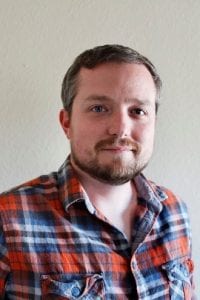
Emily Tanner-Smith
Thomson Professor, College of Education
Associate Professor, Counseling Psychology and Human Services
Executive Director, HEDCO Institute for Evidence-Based Educational Practice
Associate Vice President for Research
PhD, Vanderbilt University, 2009
MA, Vanderbilt University, 2007
BS, Belmont University, 2003
Dr. Tanner-Smith’s research interests are focused on adolescent behavior and development, substance use and addiction, and applied research methods. She is an expert in systematic reviewing and meta-analysis methods, and currently serves on the editorial board for Research Synthesis Methods. Her current research examines the effectiveness of brief interventions targeting alcohol and substance use, with particular emphasis on understanding variability in effectiveness across diverse contexts, settings, and client populations. Her current work also focuses on identifying best practices for drug treatment courts for juvenile-justice involved youth with substance use disorders. Click here for a full list of Dr. Tanner-Smith’s published works.
___________________________________________________________
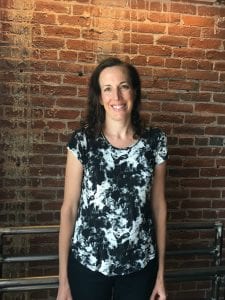
Allison Caruthers
Senior Research Associate, Prevention Science Institute
PhD, University of Michigan, 2005
MA, The College of William and Mary, 1999
BA, Wake Forest University, 1997
Dr. Caruthers’ research interests are broad, but unifying themes include adolescent development, social ecology, and prevention (or reduction) of risk behavior. For over a decade Dr. Caruthers has facilitated research on family-centered intervention. In this domain she is particularly interested in adapting evidence-based intervention programs to ease implementation and increase program uptake in diverse contexts, settings, and populations.A second area of interest is in understanding the characteristics of “good parenting” when it comes to young adult children. Although much is known about links between parenting behaviors in earlier stages of development and various social-emotional, academic, or behavioral outcomes, far less is known about the links between parenting behaviors and the well-being of young adult children. She is currently examining the relationship between parenting behavior during adolescence or early adulthood and young adult risk behavior.A third area of interest is adolescent gender and sexual socialization, and their relationship to sexual behavior, sexual risk-taking, and emotional well-being in adolescence and adulthood. More specifically, she is interested in how young people integrate notions from a variety of sources (e.g., parents, peers, media) about what it means to be a sexual woman or man, and how these notions relate to both normative and risky sexual exploration/ behavior in adolescence and emerging adulthood. She is currently examining the distinction between normal, healthy sexual exploration and truly problematic behavior, as well as possible mechanisms by which Family Check-up intervention services reduce risky sexual behavior.
___________________________________________________________
Lauren Frankel
Research Assistant, Prevention Science Institute
BS, Northeastern University, 2014
Lauren received her BS in Behavioral Neuroscience from Northeastern University in 2014. Lauren worked as a research assistant studying the neurobiology of aggression in an animal model during her time at Northeastern. She has also worked as a community mental health provider and most recently, as an analytical chemist. Lauren’s current duties involve assisting Dr. Tanner-Smith with data collection on a variety of meta-analysis projects. Outside of work, Lauren enjoys playing video games, going to concerts, and spending time with her three dogs.
__________________________________________________________
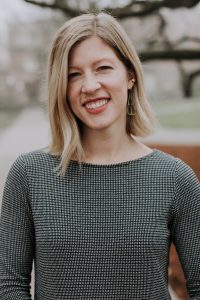
Maria Schweer-Collins
Postdoctoral Scholar and Research Associate, Prevention Science
PhD, University of Oregon, 2020
My primary research interest is using developmental neurobiology to better understand the intergenerational transmission of self-regulation processes in parents and children who have experienced child maltreatment and other forms of early adversity. Currently, I am exploring parent-child transactions as one mechanism of transmission. In the future, I hope to use these findings to optimize and adapt effective and scalable interventions that can be integrated into the child welfare service array. Prior to attending the U of O, I received a MA in Couple and Family Therapy at Bethel University, after which I worked as a home-based mental health counselor in Minneapolis supporting child-welfare involved families, which developed my interest in understanding the neurobiology of parenting at-risk. Outside of school, you will find me hiking or hammocking in the beautiful Pacific Northwest.
__________________________________________________________
Daniel Swan
Research Associate, Prevention Science Institute
PhD, University of Texas Austin, 2019
My research has involved single-case design, the direct observation of behavior, meta-analysis, and generalized linear models. My recent research involved better-understanding the potential impact of response-guided methods on treatment effect estimates in single case designs. I have also worked as a consultant for the University of Texas’ College of Education’s research design and statistical analysis consulting unit, where I offered graduate students feedback and guidance on their research design and appropriate statistical analysis, tutor them on the use of statistical software, and help them to interpret their output. At least once a semester, I also provided a free, multi-day introductory workshop in using R. My day-to-day work involves supporting the What Works Clearinghouse. I help to develop and present materials for training and certifying WWC reviewers, as well as collaborating updates and refinements to the Standards and Procedures Handbooks.
__________________________________________________________
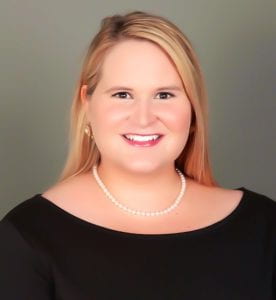
Lauren Michelle Berny
Doctoral Student, Prevention Science
Lauren completed her bachelor’s degree at The University of the South and her master’s degree in Community Development at Vanderbilt University. Following her graduation from Vanderbilt in 2015, Lauren worked at Centerstone Research Institute, where she served as the Co-Principal Investigator and Lead Evaluator for grants funded by the Office of Population Affairs, Office of Adolescent Health, Department of Education, and Substance Abuse and Mental Health Administration. Lauren’s research interests include individual and systems-level predictors of risky behavior as well as the effectiveness of interventions in curbing the trajectory of risk-taking in secondary and tertiary adolescent populations. She would like to use her research to inform programmatic decisions and policies, particularly in the areas of sexual behavior, substance use, mental health, and academic disengagement. Outside of her work, Lauren enjoys listening to podcasts, watching basketball, and playing trivia with friends.
___________________________________________________________
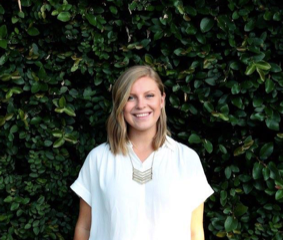
Lindsey Nichols
Doctoral Student, Counseling Psychology
Lindsey completed her undergraduate degree at the University of Texas at Austin where she majored in Psychology and minored in Sociology. Currently Lindsey is a doctoral student in the Counseling Psychology program at the University of Oregon where she also received her Master of Science in Prevention Science in 2019. Broadly, Lindsey’s research focuses on mental and behavioral health outcomes among adolescents and young adults, as well as corrections involved individuals. Specifically, she studies substance use behaviors and recovery processes in the context of reentry and educational settings, including recovery high schools. She is also interested in utilizing meta-analytic techniques to study mental and behavioral health interventions. Lindsey hopes to one day develop evidence-based interventions for justice-involved youth and their families. Apart from her research, Lindsey enjoys surfing, visiting coffee shops and restaurants, and being outdoors with her two dogs.
__________________________________________________________
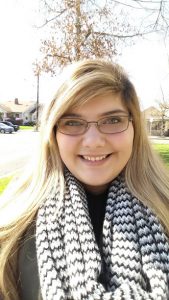
Shaina Trevino
Doctoral Student, Prevention Science
BS, Southern Oregon University, 2016
MS, University of Oregon, 2018
Shaina Trevino is a doctoral student in Prevention Science at the University of Oregon. Her research interests include evolutionary-developmental models of antisocial behavior and aggression, youth safety and wellbeing, data science, and quantitative methods. Currently, she is involved in projects examining parental eating and feeding practices, parent-child self-regulation, and student safety and well-being. Within the Applied Research Methods and Statistics Lab, Shaina assists with harmonizing multilevel, longitudinal data from various sources and preparing to archive data for public and restricted-access use. She also conducts disclosure risk analyses and performs data anonymization for privacy preserving data publishing. In the future, she hopes to use data science to encourage data based decision making and inform evidence-based policies related to healthy child development and systemic reform. Aside from research, Shaina enjoys spending time in nature and kayaking the beautiful lakes and rivers across Oregon.
___________________________________________________________
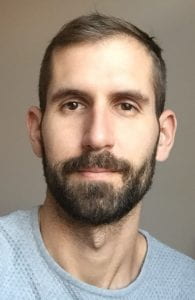
Nicholas J. Parr (Alum)
PhD, Prevention Science (June 2020)
Research Scientist, VA Evidence Synthesis Program Coordinating CenterNicholas is an experienced public health professional and researcher with expertise in systematic reviewing and meta-analysis, advanced data analysis, and public health program implementation, dissemination, and evaluation. His research to date has focused on the development and use of data analysis and synthesis methods to more fully characterize for whom and under what conditions program and policy effects vary, and on investigating risk factors for substance misuse and suicidality experienced by minority, underserved, and hard-to-reach populations. His experience as a public health practitioner includes a decade of prevention program and policy implementation and evaluation in both rural and urban communities, as well as development and effective dissemination of evidence communication and technical assistance resources. He currently serves as a Research Scientist in the U.S. Department of Veterans Affairs Evidence Synthesis Program Coordinating Center in Portland, OR, and continues to collaborate with the Applied Research Methods and Statistics Lab on meta-analysis projects.






